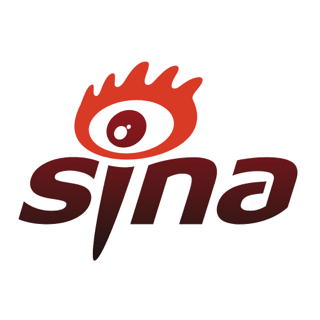1.请问如何能写好书面表达?
答:书面表达并不可怕,要记住:1.审清题目要求,确定要表达的事件和所用的时态。2.写句子时注意句子的结构(简单句,复合句),人称和谓语在单,复数上的呼应;主,从句时态上的一致性。3.尽量用我们学过的句型,习惯用语和固定搭配写句子。4写完句子要检查,检查所要表达的意思是否明晰,完整,句子是否通顺,语法是否正确,所给的词是否全都用上了,以及字母大小写及标点符号是否正确。要注意的是:不要一个中文词就对应一个英文词译出来,要看着中文想着我们学过的英文表达方式。
2. have you been to是什么意思?
答:是某人去过某地的意思。人在此地。例如:I have been to the Great Wall twice.
和它相对应的是:have gone to
表示某人去了某地,人不在此地。例如:I can't find my English teacher. Maybe
she has gone to the school library.
3. Would you like____to drink?应用some water还是anywater?为什么?
答:用some water。因为真诚地希望得到肯定的回答。
再例如:Would you like something to eat?
May I ask you some questions?
4. on time / in time的区别?
答:on time准时(准时准点,没有余地)
in time按时,及时(有余地)
5. How long /How soon的区别?
答:How long对长度提问或对一段时间提问。
例如: How long is the Changjiang River?
How long will you stay here?
How soon是对in短语提问。(表示多快)
例如: How soon will you come back? In five days.(五天后/内)
6. possibly和probably的区别?
答:程度上的区别。Probably可能性更大些。
possibly可能,也许;用在否定和疑问句中:无论如何,不管怎样。
probably很可能,大概,或许。
7.他通常赶10路公交车去上班.
答:He usually(catches the member)10 bus to work.括号处可否用catches up with?
不可以互换,因为意思不同。Catch the bus和take the bus相似。
catch up with:赶上某人
例如:He worked so hard that he caught up with his classmates.
8.温度既不能太高,也不能太低.
the temperature must be neither too( high )or too low.括号处可否用hot?
答:不可以。因为温度是以高低来区别的。
如果用it做主语(表示天气)可用冷热来区别的。
9. Remember not to speak loudly in the library.
A.Sorry,I won't do it again.
B.Yes,I will.
此题究竟应该针对"remember"回答,还是"not to"回答?
答:应该针对"not to"回答,因为这是作者的主要意思。
10. --May I speak to Mr Hu, please?
--Sorry,he's out at the moment._______________.
A. Could I take a massage to him?
B. Could I pass him a massage?
C. Could I leave a massage to him?
似乎哪个语法都说得过去,老师们的答案也不统一,究竟该选哪个?
答:一般在这种情况下的回答:Could I take a massage for him?
11. Merry Christmas!
A. Thank you.
B. The same to you.
我们以前做题时选的是B,可现在有的老师说一律改成A了,说对方不管说什么都应先说"谢谢",然后再说后面的话,到底应该怎样呢?
答:老师说的有道理,但是这两个答案一起说最好, Thank you. The same to you.如果只选一个,就选B,比A有礼貌。
12. what happened和what was happened怎么用?
答:一般都用主动语态而不用被动语态。
happen: vi.发生
A strange thing happened.发生了一桩怪事。
What happened to the machine?机器出了什么毛病了?
What happened next?后来怎么样了?
happened to :后加名词或代词表示……发生什么事了?(突然发生)
happen to :接动词不定式,偶然,碰巧。
Do you happen to remember his name ?你还记得他的名字吗?
What has happened to your arm ?你的手臂怎么了?
If anything happens to him, let us know.如果他发生什么意外,就通知我们。
13. It is surprising that a small child of three or four can sing a song without understanding its meaning _____
A. fully B. very much C. certainly D. too well
老师这道题我认为从几个选项的意思上上讲都是讲得通的,不知该怎么区别?
答:选A。完全地。fully understand完全理解。其他选项不适合这里。
14. ----We could have walked to the station ;it was so near.
----Yes ,a taxi ______at all necessary
A. wasn't B. hadn't been C. wouldn't D. won't
老师这道题的第一句话是虚拟语气吧!!还有我认为这句话是不是改成necessery at all更好一点啊,又题中的那种用法吗?读起来好怪啊~~~~~~~
答:是虚拟语气,选B。表示已过去,已经完成,现在不可能、或不现实的事情。
15. Smith will not be able to attend the meeting tonight because _____a class.
A. he must to teach B. he will be teaching
C. of he will teach D. he will have taught
答:选B。将来进行时表示未来某个时间动作将正在进行。
16. ----How is the progress? (该是program项目)
----Two-thirds of the work _____finished.
A. are B. is C. were to be D. was to be
老师这道题是什么时态啊?
答:选B。一般现在时。表示现在做完了2/3的工作,用现在完成时更好。
has been finished。progress该是program吧(项目)
17. I thought it over ,but could _______no conclusion.
A. come to B. come after C. come out of D. come into
老师这道题我在朗文,牛津大辞典上都没有查到关于come after和come into的有关用法,请老师详细解释一下好吗?还有其它的几道题,我想了半天都十分不敢确定,请老师给我仔细讲一讲!!谢谢老师
答:选A。come to conclusion得出结论A good idea has come to my mind我想出了一个好主意。
Come to (事物)来到,落到,产生。
come after跟在…..后面,
come into到……里面来,其它意思要视语言环境而定。
18.还想请问一下老师lay, lied, laid和lain这几个词都是什么意思,用法上有什么区别和需要注意的地方?老师辛苦了
答:lie, v.:说谎(lied, lied, lying);n.谎言
lie, v.:平躺,位于,处于某种状态。(lay, lain, lying)
lay, v.下蛋,飞机投弹,放,搁置(laid, laid)
19.单选,是please keep the fire____and the window____.
A. burn; open B. burning; opening
C. burned;opened D. burning;open
希望您能具体讲讲,谢谢!
答:选D。keep doing sth.:表示持续地做着某事。
keep +形容词:表示保持某种状态。(open在这里是形容词,意思是让火总着着,让窗子开着)。
又:Don't keep me waiting. (持续)
Please keep our classroom clean and tidy. (状态)
20. After ( ) a shower,he eats his breakfast.
A. take B. takes C. taking D. took
请问如何选择,谢谢。
答:选C。介词后面要用名词、代词或名词性的词,如果是动词一定用动名词做介词宾语。
21. A:How are you paying
B:
A: By cash B:In cash C:In cheque
Which answer is right???
答:选B。用现金付款习惯说in cash.
一般说来,用……语言,用……方式,用in;用……工具,用with .
22.我的问题是关于句子的成分。如:
Tom`s father was made (to work )on the farm from morning till night.
其中to work是什么成分,为什么不能用working?
答:was made to work译为"被强迫干活",是一般过去时的被动语态。to work是宾语"Tom's father"的补语,也就是说"to work"是由Tom's father来做的,它的主动语态是make sb.do sth., do sth.是省略to的动词不定式,当它用于被动语态时,to则不能省略。再例如:
He made the baby cry.变成被动语态则是:
The baby was made to cry by him.
24.如何理解宾补的意义?
After ( ) a shower,he eats his breakfast.
A. take B. takes C.taking D.took
请问如何选择,谢谢。
答:当一个宾语不能说明情况时,需要宾语补足语(宾补)来补充说明。就目前初中阶段来看,需要宾补的词有:keep sb. waiting, ask sb. to do sth. , pass me salt,
find it difficult, call him Xiao-wang.划线部分是宾补。作宾补用的词是形容词、动名词、不定式和名词等。
25.老师您好,问您几个问题
⑴He sang songs as____as his friends at the party yesterday evening.(happy)
⑵Mr Li wasn't a ___ three year ago.(wait)
⑶那架飞机没有故障。这句话用英语怎么说?
⑷主将从现,主语是将来时,从句用现在时?
答:⑴用副词happily,因为所修饰的sang是行为动词。如果谓语是be动词或其它系动词,这个空应该用形容词。
⑵用waiter,根据题意应是服务员、侍者。
⑶There is nothing with the plane.英汉互译不要去对应每个词,而要用不同的表达方式、句型、词组和固定说法。
⑷这是指动词的时态特点,例如:if条件从句,as soon as和not……until的时间状语从句,有时带when的从句,主句用的是一般将来时,从句不要再用一般将来时,而用一般现在时。当然,它们的主从句都可以用一般现在、一般过去时态,根据当时情况,复合句要注意时态的一致性。
26. interesting形容物,interested形容主观感受,对否?
答:现在分词表示主动的意义,表示本身有兴趣;过去分词表示被动意义,表示令人感到有兴趣。
The film is interesting, we are in interested it.
The football match is exciting, we are excited.
27. too much与much too有什么区别?
答:too much,与不可数名词连用,常用于疑问句和否定句中。如:I haven't got too much money. It's too much for me.
much too,与副词和形容词连用,如:I'm afraid my husband is much too busy to see visitors.
28. To get an injection is ? ( )
A. a bit painful B. little painful
C. a little pain D. a bit of painful
答:选A。a bit修饰形容词,a bit of加名词。C的选项是对的,但不能用在这里,因为谓语是be,后面需要用形容词。.
29. They have made up their ? to do it well.( )
A. mind B. minds C. idea D. ideas
为什么?
答:选B。make up one's mind意思表示下决心,决意,有复数形式。
30. ---She didn't come to school yesterday, did she ?
--- ?, though she was not feeling very well.
A. No, she didn't B. Yes, she didn't
C. No,she did D. Yes,she did
为什么?
答:选D。虽然感到不舒服(though),她还是上学去了,符合逻辑。所以是
She did.与之相配的就是Yes,与汉语习惯不同。
31. Everyone except John and Mike ? there when the meeting began.
A. is B. are C. was D. were
答:选A。因为主语是everyone,不定代词,用单数第三人称的动词形式。
32. ----The dog seems ? ill.
----What has happened ? it?
A. badly; to B. terrible; of C. serious; at D. very; from
为什么?
答:选A。因为用副词修饰后面的形容词ill。又:happen to词组的意思是发生。
34.我是一名初三的学生,我马上要进行一模考试了。在这么短的时间里,怎样才能有效的做好复习?谢谢老师。
答:应急措施:⑴坚持不懈,有信心。
⑵做会、背熟《中考说明》中的除阅读、完形以外的内容。
⑶根据《中考说明》中的样题把手中的有的材料中相应的题做一做。
这样就可以抓住基本分了。阅读和听力中的短文,从文中找答案线索,也可以得到一些分。
